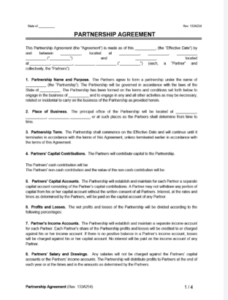How to Register a Partnership: A Step-by-Step Guide
Starting a business with a trusted partner can be exciting, rewarding, and challenging at the same time. A partnership firm is one of the most popular business structures for entrepreneurs who want to combine their resources and expertise. It’s easier to set up than a company, involves fewer compliance requirements, and offers flexibility in operations. However, to protect your interests and ensure smooth functioning, to register a partnership is a critical step.
In this blog, we’ll walk you through the benefits of registering a partnership and a step-by-step process to get it done in Pakistan (also applicable in many similar legal systems).
What is a Partnership?
A partnership is a business structure where two or more individuals manage and operate a business under a shared agreement. This agreement—called the partnership deed—defines roles, profit-sharing ratios, responsibilities, and exit terms.
Under the Partnership Act of 1932, registering a partnership in Pakistan is not mandatory, but it is strongly recommended to avoid future disputes and gain legal recognition.
Why Register a Partnership?
Although unregistered partnerships are legal, a registered firm enjoys several advantages:
-
Legal recognition and protection in court.
-
Ability to file suits against partners or third parties.
-
Access to banking and financial services under the firm’s name.
-
Better credibility with clients, suppliers, and regulatory authorities.
-
Facilitates easier business expansion and compliance with tax requirements.
Step-by-Step Guide to Partnership Registration
Here’s how to register a partnership in Pakistan. The process is simple and cost-effective if followed properly.
1. Choose a Business Name
Your business name should be unique and must not infringe on existing trademarks or resemble any government authority. Avoid using terms like “limited,” “Inc.,” or “Private Limited” which are reserved for companies.
You can check the availability of your desired name through your local registrar or provincial business registration authority.
2. Draft a Partnership Deed
This is the most important document of your firm. It lays down all the terms agreed upon by the partners. Key elements include:

-
Firm name and address
-
Nature of the business
-
Name and details of partners
-
Capital contributions by each partner
-
Profit/loss sharing ratio
-
Duties and obligations of partners
-
Rules for admission, retirement, or expulsion of partners
-
Dispute resolution mechanism
The deed should be printed on a stamp paper of the required value (as per provincial stamp laws) and signed by all partners in the presence of witnesses.
3. Get the Partnership Deed Notarised
Although not compulsory, notarising the partnership deed enhances its legal authenticity. Visit a licensed notary public to complete this step.
4. Submit Registration Application

Visit the local Registrar of Firms office (usually under the Directorate of Industries of your province) and submit:
-
Application Form-I (available at the registrar’s office or online)
-
Attested copy of the partnership deed
-
CNIC copies of all partners
-
Proof of business address (e.g., utility bill or rent agreement)
-
Paid challan of registration fee
The registrar will verify your documents. If everything is in order, your firm will be registered and issued a Certificate of Registration.
5. Register with Tax Authorities (Optional but Recommended)
Even after registering your firm, it’s important to register with the Federal Board of Revenue (FBR) https://fbr.gov.pk/ to obtain a National Tax Number (NTN) and become a filer.
This step is crucial for:
-
Opening a business bank account
-
Participating in tenders or contracts
-
Claiming input tax refunds (for certain businesses)
You can register online via the FBR Iris Portal or visit a nearby tax facilitation centre.
Final Thoughts
Starting a partnership business can be a great way to share skills, responsibilities, and capital. While many small businesses operate without registration, a registered partnership offers credibility, legal security, and long-term benefits that far outweigh the minor time and cost involved.
It’s a wise step for any serious entrepreneur looking to build a sustainable business.
Need Help?
You can consult a legal adviser or hire a business consultant to make the process even smoother. Some online portals also offer end-to-end registration services.
https://taxaccountant.pk/ provides you a professional consultation for such niches….. you can always approach us electronically without any in-person meetings.
Ready to Register Your Partnership?
Start today by drafting a solid partnership deed and heading to your local registrar’s office. A registered partnership is not just a legal formality—it’s a foundation for trust, clarity, and growth.
















